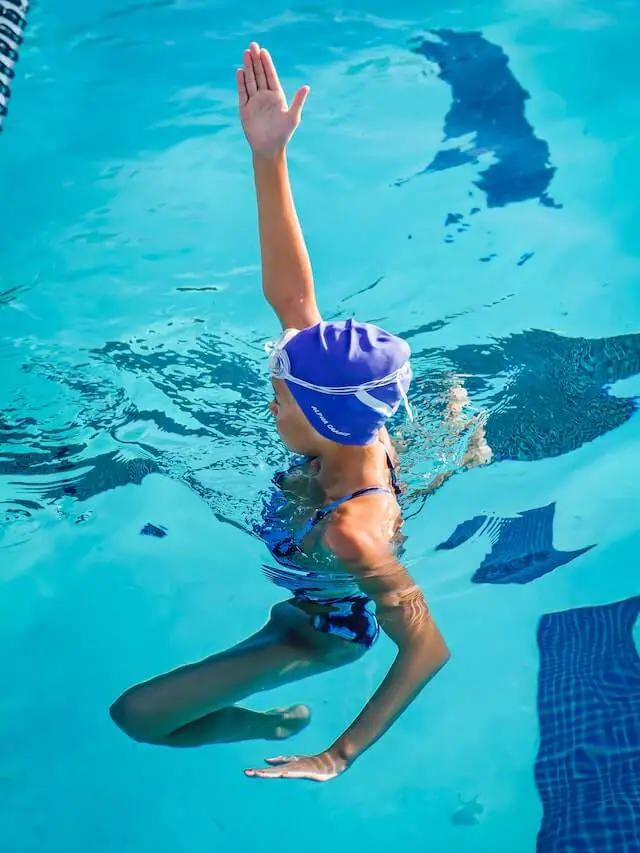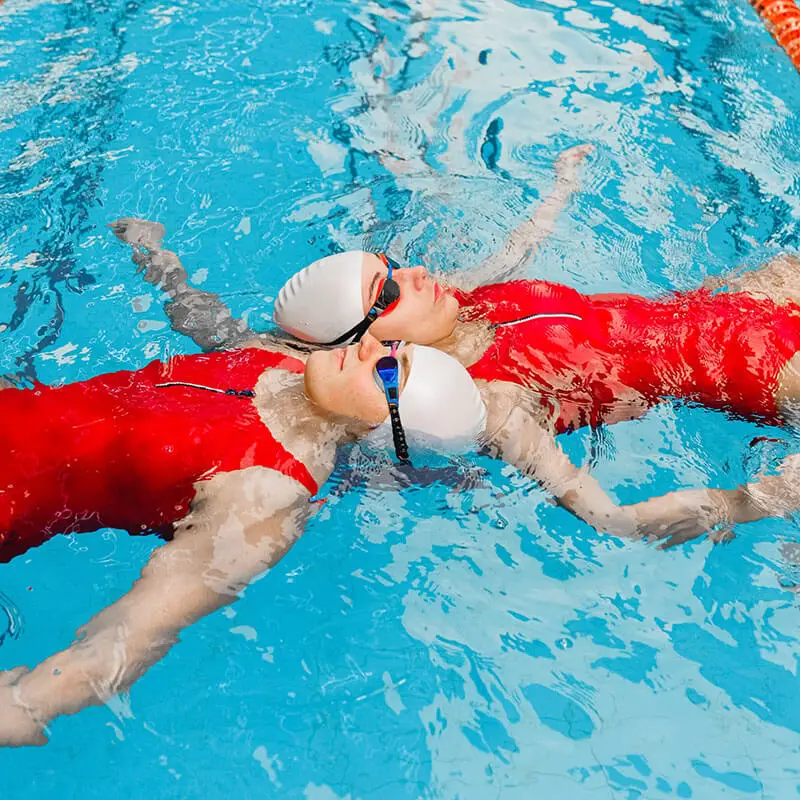Some people find it effortless to stay afloat whereas other people sink to the bottom no matter how much they thrash and flail about. This contradiction has puzzled many – do humans naturally float, or don’t they?
There are many factors that affect one’s buoyancy in the water. Generally speaking, all humans are naturally buoyant to some degree, though some are more buoyant than others. Some variables are your body composition (i.e. fat content and muscle mass), how much air you are keeping in your lungs, whether you are a man or a woman, and if you know how to position your body to help you stay afloat.
Knowing how to stay afloat is an incredibly important survival skill. Even if you don’t frequent pools, lakes, or the ocean much, it’s still a good skill to know in case of floods or the occasional times you do visit any body of water for recreational purposes.
In this article, I will answer the most common questions you may have about floating so that you better understand how to do it and why you may be struggling with it.
Can everyone float in water?
How easily one floats in water depends on how dense his/her body is compared to water. If your body is less dense than water, you will float; otherwise you will sink.
Since 55-60% of the human body is made up of fluids, this has a net neutral effect on one’s buoyancy (ability to float/sink) in water. Some tissues in our body are also neutral.
Muscle and bone are denser than water, so they will cause the body to become more negatively buoyant (sinks in water).
Fat is less dense than water, so it will cause the body to become more positively buoyant (able to float).
The air in our lungs is less dense than water, so more of it will cause one’s body to stay afloat.
There is even the matter of location. If you are swimming in saltwater, then it becomes even easier to stay afloat because saltwater is denser than freshwater due to its high salt content.
Another consideration is your sex. Males typically have a higher ratio of muscle mass to fat, whereas the ratio for women is not as pronounced. Therefore, women tend to have a higher body fat percentage than men which helps them naturally float more easily in water than men.
To directly answer the question, everyone has parts of their body that are less dense than water, and parts that are denser than water. Everyone is buoyant to some degree, but not everyone is positively buoyant.
Do fat people float better?
Obese individuals and women have an easier time staying afloat than others.
The reason is that fat is less dense than water. The more fat content your body has relative to lean mass, the more likely you will naturally float.
Conversely, people with a low body fat percentage have a harder time staying afloat because their lean mass is denser than water.
Women naturally have a higher body fat percentage than men, so they will float more easily even if they are skinny.
This isn’t to say that lean people cannot stay afloat. Obviously, if you look at the Olympics, every single Olympic swimmer has an incredibly low body fat percentage and they aren’t sinking like a stone to the bottom of the pool.
If you know how to tread water or scull, you can stay afloat even if you barely have any fat on you, but that requires technique and energy.
Can you float in water without moving?

Indeed, you can. Aside from fat content, another important factor that can improve your buoyancy is having air in your lungs.
This is the same concept as staying afloat with flotation devices such as inflatable life jackets, except the air bladder in this case is literally your lungs.
Even a lean person can become positively buoyant if they have enough air in their lungs. You can test the efficacy of having air in your lungs easily.
Take a deep breath and then hold it in while you’re in water: all other factors being equal, you will find this is when you are at your most buoyant.
Then slowly exhale your breath. As the air leaves your body, you will find yourself sinking bit by bit until you run out of breath.
Another consideration is whether you are floating on your back or horizontally. If you float on your back, it is much easier compared to staying afloat vertically.
How long can you float on your back?
You can float on your back for hours because it is very energy efficient to do so.
Compared to treading water, while there are also energy efficient ways to do so, floating on your back conserves even more energy.
You’ll find that when you lie on your back in water, you become positively buoyant almost effortlessly compared to when you were in a vertical position expending energy to tread water or scull.
Why does this happen? The reason is that there is always water pressure pushing upward against your body so when you go into a horizontal floating position on your back, there is a much greater surface area for the water to push against.
Conversely, when you are in a vertical position in the water, the upward force of the water applies to a smaller surface area making it more difficult for the water pressure to push you back to the surface.
Since you barely need to expend any energy to float on your back, you can stay in that position for a long time to rest and recover.
If you happen to fall off a boat or get pulled far away from shore by a rip current, then your best bet to survive is to float on your back and conserve as much energy as possible until you get rescued.
Why do I sink when I try to float?
Your body composition plays a big part in whether you naturally float or not.
If you have a low body fat percentage, you are more likely to sink than others. Unfortunately, there is nothing you can do about it; it’s just physics.
That said, it’s also likely you are doing something wrong with your breathing. If you are panicking, chances are your breathing is irregular.
If you are flailing around and expending a lot of energy, you will be breathing rapidly and therefore losing buoyancy each time you exhale.
You need to take deep breaths to completely fill your lungs with air. The more air is in your lungs, the more buoyant you will be.
Tilt your head back so both your mouse and nose point upwards and can easily access the air at the surface.
Stay calm, try to conserve as much energy as possible, and keep as much air in your lungs to stay afloat.
How and why do people drown if they can naturally float?
If some people are naturally buoyant, how can they still drown?
There are many reasons for that. First of all, as mentioned, having air in your lungs can do wonders for buoyancy.
However, what if the water conditions are rough? What if there are waves constantly splashing on you and causing you to choke? Then as your lungs fill with water you can drown.
Furthermore, when people are panicking, they are more likely to breathe rapidly which causes them to lose buoyancy compared to if they just took deep breaths and held them. As they struggle for breath, it is easy to get water in one’s lungs and drown.
If someone loses consciousness while in the water for whatever reason (e.g. head injury, medical condition) then they may end up face down underwater. If no one keeps their head above the water, then they will drown.
If someone falls into the water with all of their clothes on, the clothes will absorb a lot of water and weigh them down. If they are not able to remove their clothes in time, they can drown.
Many competent swimmers have drowned trying to rescue someone who is drowning. When they reach the person in distress, the distressed individual ends up pushing his rescuer underwater because he doesn’t know how else to stay afloat. The rescuer can be held underwater long enough to drown, becoming a victim themselves.
As you can see, it is very easy to drown even if you naturally float or are a competent swimmer. You cannot always assume that conditions will be idyllic, because they almost always aren’t. And as such, you should be careful around any body of water even if you are a competent swimmer.

